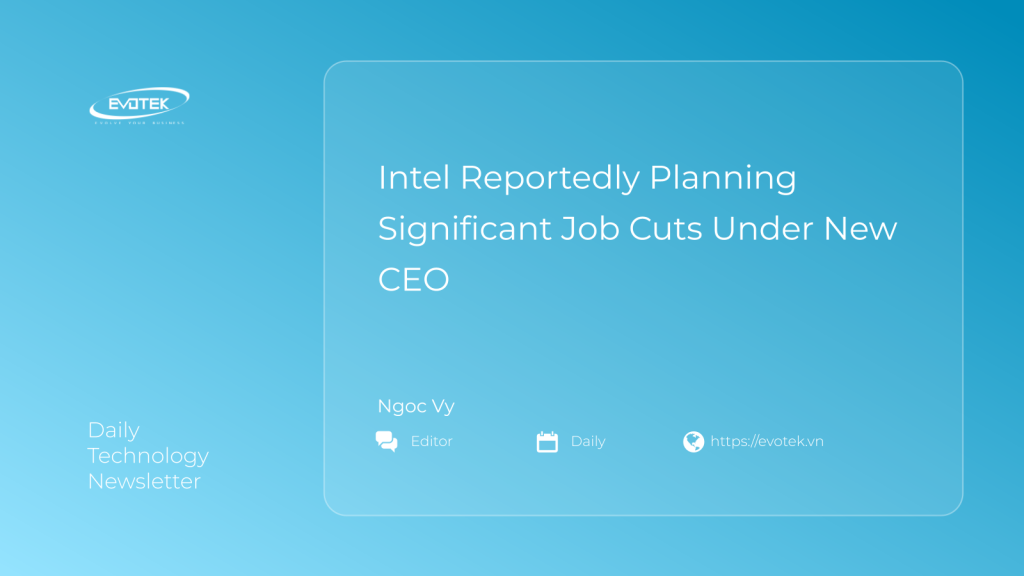Intel, under the leadership of its relatively new CEO Lip-Bu Tan, is reportedly planning a substantial workforce reduction, potentially impacting over 20,000 employees. According to a Bloomberg report citing an anonymous source, these cuts are aimed at streamlining operations and improving the company’s financial standing.
This potential restructuring follows earlier layoffs at the semiconductor giant, which is grappling with evolving market demands and increased competition. While these measures could bolster Intel’s financial health, concerns are rising about the potential impact on the company’s technological expertise and innovation capabilities.
An official announcement is expected this week, although Intel has declined to comment on the report.
Impact on Oregon’s Economy
Massive layoffs could have a major impact on Oregon. Intel is one of the state’s largest employers, with around 20,000 workers located at its Washington County facilities. Semiconductors are a major contributor to Oregon’s economy, representing the state’s most valuable product and primary export.
Intel’s Challenges and Strategic Shifts
Once the dominant force in the chip manufacturing industry, Intel has faced challenges in recent years due to technological setbacks. Demand for Intel chips has decreased and significant investments in new manufacturing plants have placed the company under increased financial pressure. The company has also struggled to compete effectively in the rapidly expanding artificial intelligence (AI) market.
Intel’s financial struggles are evident in its recent performance. Sales have declined by approximately one-third since 2021, and the company recorded a substantial $19 billion loss the previous year, primarily attributed to accounting charges and severance costs related to previous job cuts.
Beyond financial considerations, the pending job cuts may reflect a broader strategic shift towards greater efficiency and effectiveness under Tan’s leadership. Since assuming the role of CEO in March, Tan has implemented organizational changes, replaced key technology executives, and finalized the sale of a majority stake in Intel’s programmable chip business, Altera.
Analyst Perspective
While analysts generally agree that Intel is not facing an imminent financial crisis, they acknowledge the presence of systemic issues that could pose long-term challenges to the company’s business model.
Intel’s stock saw a roughly 2% increase in late trading Tuesday evening, reaching $19.90. However, the stock’s value has decreased by approximately half over the past year.
Source: Information based on reporting by Mike Rogoway, The Oregonian/OregonLive.

 日本語
日本語 한국어
한국어 Tiếng Việt
Tiếng Việt 简体中文
简体中文